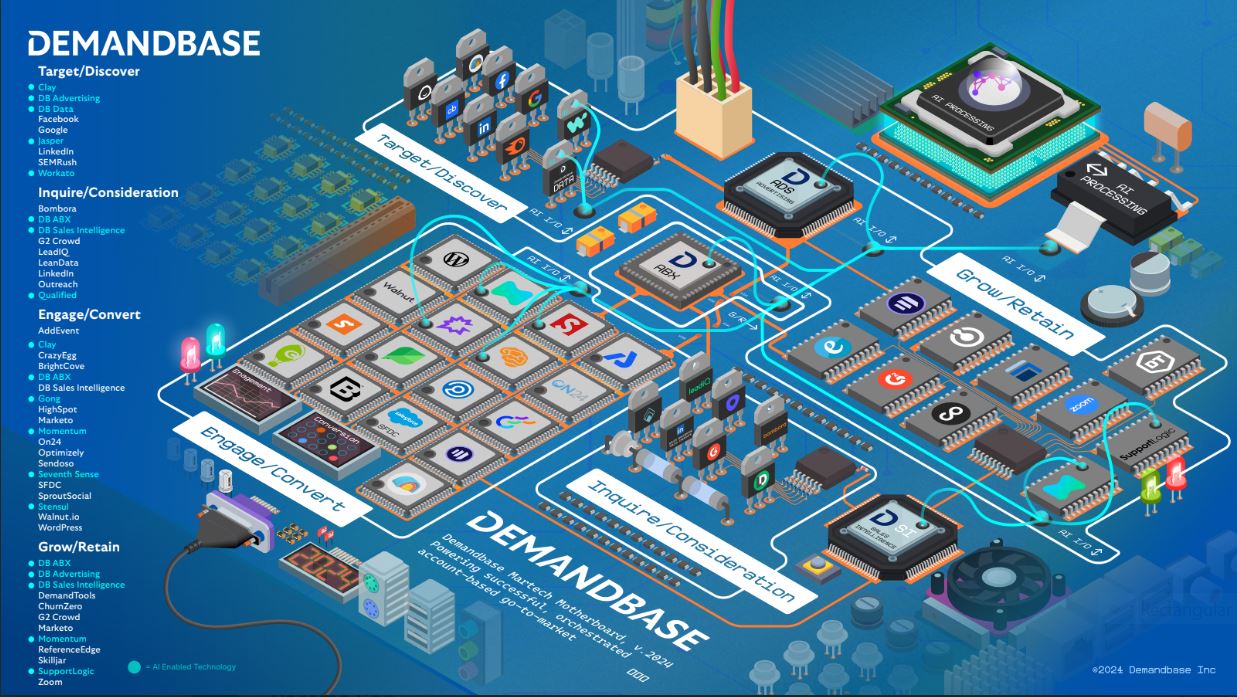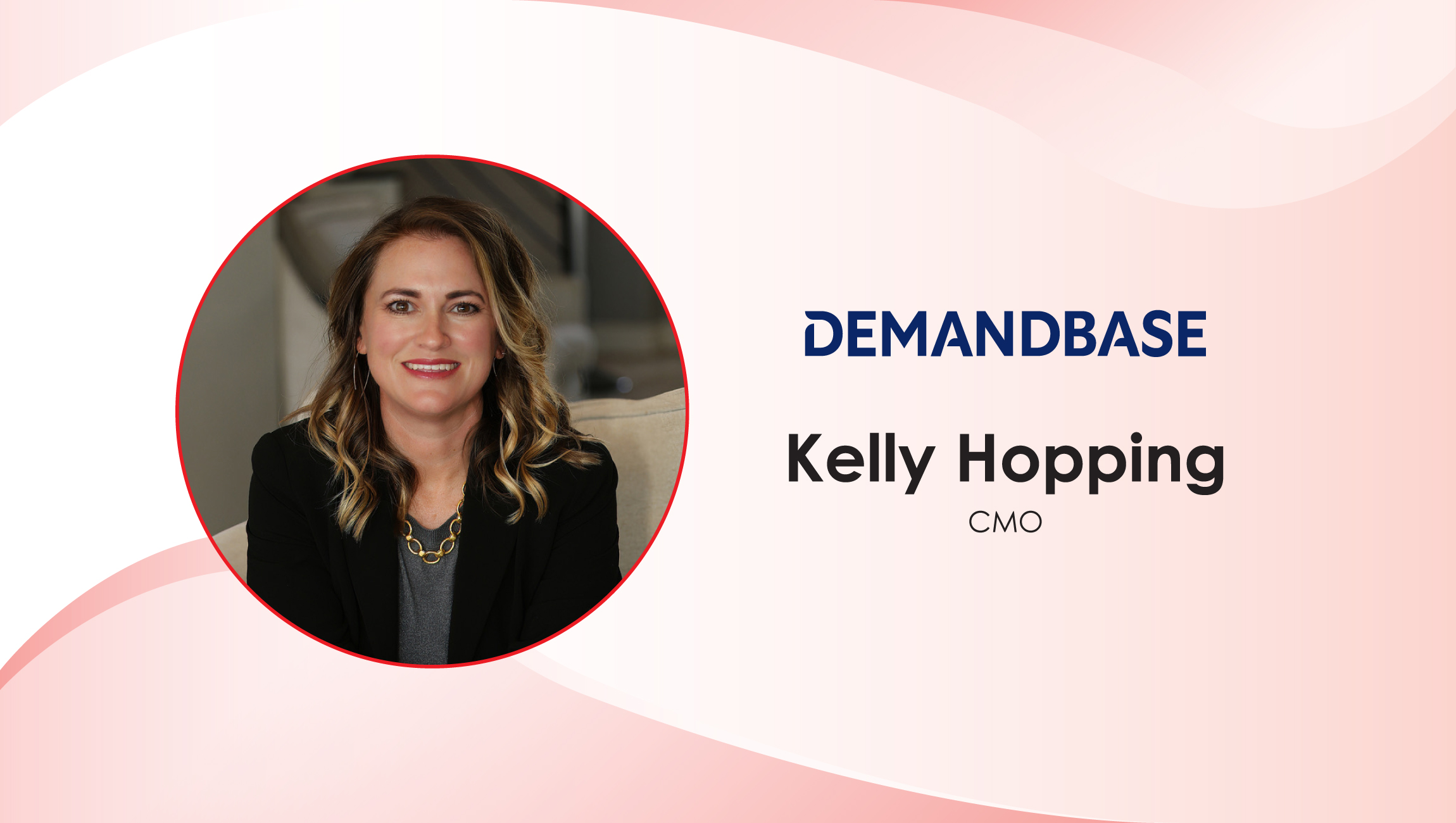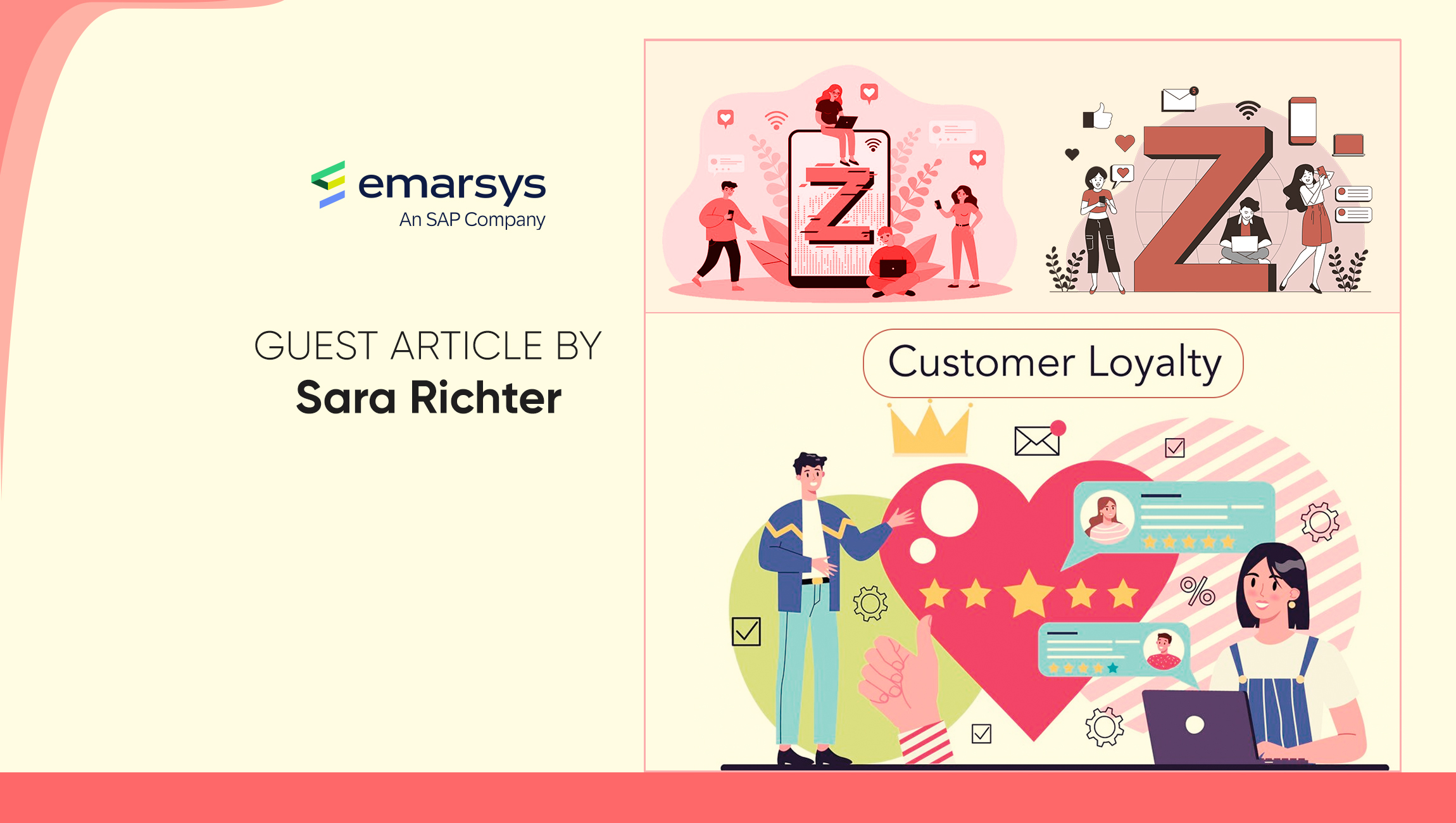Kelly Hopping, CMO at Demandbase catches up with MarTech Series to chat about the fast evolving marketing and martech landscape and how the future of marketing will largely be driven by AI:
____________
Hi Kelly, tell us about your time as CMO at Demandbase.
I’ve been at Demandbase for just about 16 months and have spent a lot of my time assessing, building, and restructuring key areas. When I first started, I focused on familiarizing myself with the market, understanding customer sentiment, and clarifying our unique positioning. I led our company’s rebranding effort this year which we debuted in early October, aligning our story with our go-to-market (GTM) strategy, simplifying our pricing and packaging, and strengthening our team to support our goals. It’s been quite a journey, and I’m really proud to have played a part in aligning our organization, refining our strategy, and building trust across the team.
What about being a Marketing Leader excites you most in B2B Tech?
I’m in a unique position at Demandbase, where I get to market to other marketers and actually use our product internally, which gives me authentic insights that shape how I communicate our value. Connecting with other CMOs, hearing about their challenges, and continuously using that feedback to improve our approach is gratifying. I get excited every day to engage with an audience I understand so deeply and speak to them in a meaningful way.
What common top of mind myths surrounding the goals and roles of marketers in tech would you like to bust here today?
A widespread myth about AI in marketing is that it’s about efficiency and cost-cutting, which is why so many fear it will replace jobs, especially in content creation and creative roles. I believe AI should be viewed as a revenue generator, not a job eliminator. It enables strategic marketers to work more effectively, freeing them up to focus on creative thinking and innovation. Rather than replacing roles, AI enhances our ability to make smarter, data-driven decisions, automate mundane, time-consuming tasks, and unlock insights that we couldn’t access before.
Marketing Technology News: MarTech Interview with Jon Moran, Head of MarTech Solutions Marketing @ SAS
How have you been using martech and AI-powered marketing technologies to drive marketing impact over the recent years?
At Demandbase, we’ve been using AI for years, leveraging our own platform to automate data analysis and identify intent signals that guide our GTM strategies. We’re also focusing on automating workflows with AI agents to simplify setup and streamline processes for our customers. Outside of Demandbase, we use tools like ChatGPT for generating outlines or transactional content and Jasper for automating content creation workflows across various teams. Additionally, we use Clay to augment account data for our SDRs, helping them spend more time engaging with prospects rather than doing manual research.
What are some of the biggest martech innovations you’ve been most excited about in the recent past and why?
I’ve become more excited about the shift toward more composable tech stacks. While integrated platforms like Demandbase have dominated, I’m seeing a growing trend of companies unbundling these solutions to build their own proprietary stacks by integrating with the best solutions available. Enterprise companies in particular are eager to tailor their stacks to meet specific needs and operate with more agility, and moving toward open data, open APIs, and customizable integrations is enabling that.
How can marketers drive better marketing cycles in B2B SaaS through 2025? What top thoughts and tips would you share?
Put simply, marketers need to approach the buyer journey holistically to drive better marketing cycles. Customers enter the funnel at various stages, so old linear models no longer apply. Marketers should focus on delivering content and resources that address customers’ specific questions at each stage, like educational content, testimonials, or quick how-to videos.
By anticipating customer needs and ensuring smooth interplay between stages, from SDRs to sales to post-purchase, marketers can keep prospects engaged and moving forward through the funnel, ultimately improving conversion rates. Clean, efficient lead flow management and fast follow-ups will make a massive difference in driving better outcomes.
Do you have a ”perfect martech stack” – what would a perfect martech stack entail in your view?
Something along the lines of:

Five predictions on the future of AI and martech before we wrap up?
- AI Agents Will Optimize Workflows: For a while, AI has been treated as a feature within products, but in the future, it will be the basis for workflows that users can activate. This will give marketers more control over how they use AI in their daily operations and decision-making.
- Companies Will Reframe Their AI Strategy: To thrive, companies must expand their view of AI beyond their current niche. Those who position themselves as comprehensive AI players in their space will have greater growth potential than those who just bolt AI onto existing solutions.
- Self-Service AI for Customers: As AI agents become more sophisticated, companies will use them internally and enable customers to harness AI for their own needs. This shift toward empowering users to build their own AI solutions could become a major trend, especially as many businesses want more control over their AI use.
- Service-as-a-Software: Instead of just selling SaaS products, we’ll see a rise in “service-as-a-software” in the future. This model would offer AI-driven services embedded in software, enabling companies to deliver value through ongoing service provision rather than technology alone.
- Specialized AI Roles Will Emerge: New specialized roles will be carved out in organizations, like AI product managers and product marketers who are focused on data and AI. These positions will help teams manage and navigate the complexities of AI tech stacks effectively.
Marketing Technology News: Understanding the Essentials of MarTech and AI Driven Marketing
Demandbase is a leading account-based GTM platform for B2B enterprises to identify and target the right customers, at the right time, with the right message. With a unified view of intent data, AI-powered insights, and prescriptive actions, go-to-market teams can seamlessly align and execute with confidence. Thousands of businesses depend on Demandbase to maximize revenue, minimize waste, and consolidate their data and technology stacks – all in one platform.
Kelly Hopping is currently the Chief Marketing Officer (CMO) for Demandbase where she is responsible for differentiating the go to market platform, increasing brand presence, and accelerating acquisition and conversion of potential customers. Prior to joining Demandbase, Kelly honed her start-up skills as the first CMO at HYCU, a series B, venture capital-backed data protection SaaS company. She now continues at HYCU as an Advisor. Before HYCU, Kelly served as the Chief Marketing Officer for the Digital Markets division of Gartner where she managed a portfolio of brands – Capterra, GetApp, and Software Advice – to grow awareness and demand in the market. In this role, Kelly and her marketing team drove 100% of the revenue acquisition for the $300M+ organization.











